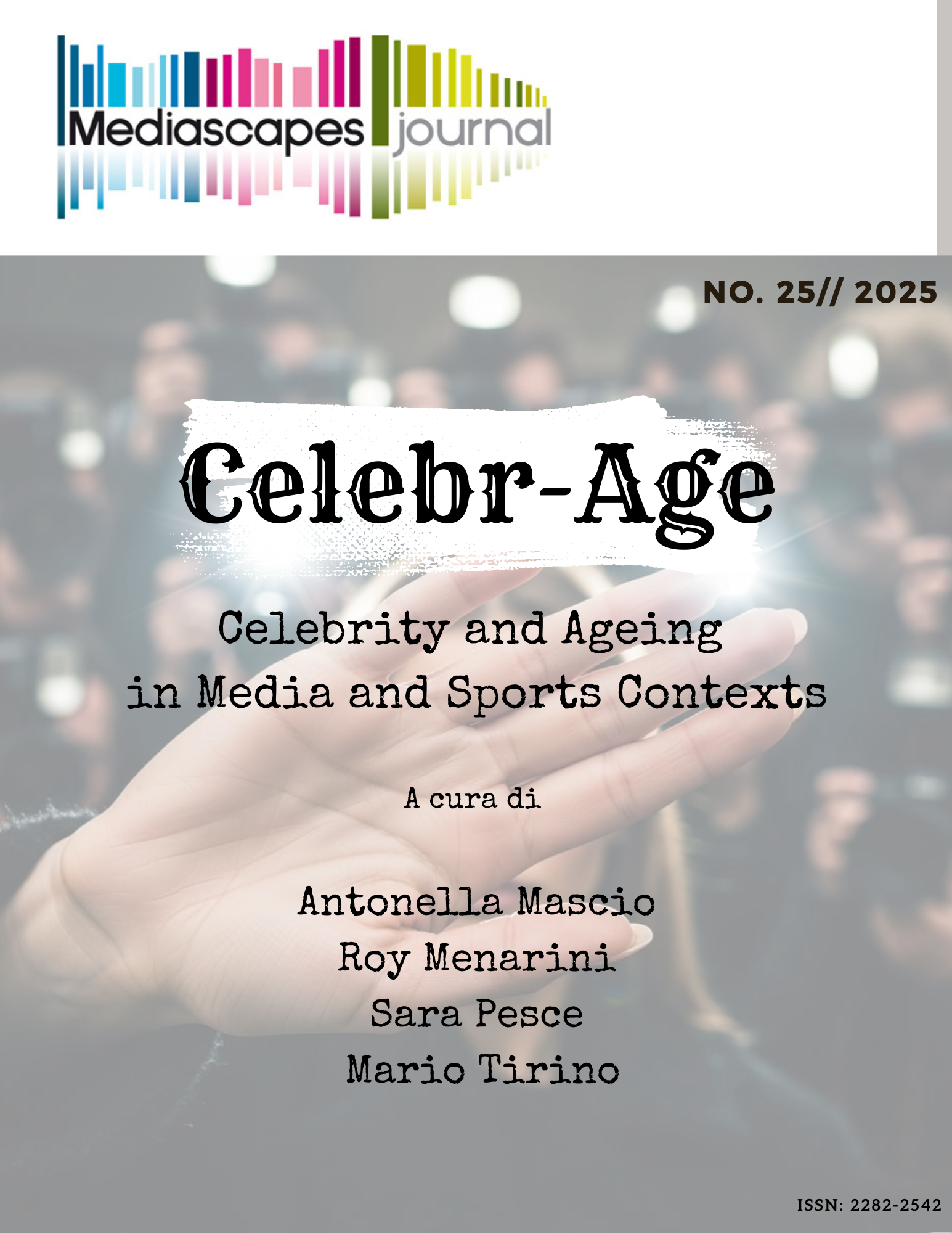“Es el show de Maradona”
Between charisma and commodity
Parole chiave:
Maradona, Celebrity, Charisma, Economic Rationality, commodityAbstract
The TV series Maradona in Mexico seems to make explicit the conflicting coexistence of rationality and irrationality, disenchantment and enchantment in the celebrity status of contemporary sport. Sport has, in fact, its own ritualistic, emotional, effervescent dimension, capable of rooting solidarity, identity, and social belonging. At the same time, the factors of commercialization, commodification and spectacular entertainment, based on the principles of economic rationality and profit orientation, are equally constitutive today, if not more influential. Thus, a sports celebrity maintains that complex balance between being a brand within a market logic and an identifying point of reference for communities of fans, apparently by virtue of charismatic qualities and a predisposition for enchantment. Maradona’s experience in Mexico – with his performance in the TV series – is no exception. The series tells the story of how Maradona, called upon to coach a low-ranking team in the Mexican second division, emerges as a charismatic leader, a centre of ritual attention, apparently gifted with mysterious and ineffable qualities. Despite his advanced age and very poor health, he still seems capable of arousing deep feelings, of instilling energy and of potentially leading a team – and with it the whole community – towards innovative and glorious footballing and moral achievements. However, his charisma does not escape the mesh of market rationality without being somehow contained and integrated. As a famous personality inserted in the commercial mechanisms of football, but also as a character in the television industry, he is experiencing that process of commodification of reputation that is typical of sports celebrities.
##submission.downloads##
Pubblicato
Come citare
Fascicolo
Sezione
Licenza

TQuesto lavoro è fornito con la licenza Creative Commons Attribuzione 4.0 Internazionale.
Gli autori che pubblicano su questa rivista accettano le seguenti condizioni:
- Gli autori mantengono i diritti sulla loro opera e cedono alla rivista il diritto di prima pubblicazione dell'opera, contemporaneamente licenziata sotto una Licenza Creative Commons - Attribuzione che permette ad altri di condividere l'opera indicando la paternità intellettuale e la prima pubblicazione su questa rivista.
- Gli autori possono aderire ad altri accordi di licenza non esclusiva per la distribuzione della versione dell'opera pubblicata (es. depositarla in un archivio istituzionale o pubblicarla in una monografia), a patto di indicare che la prima pubblicazione è avvenuta su questa rivista.
- Gli autori possono diffondere la loro opera online (es. in repository istituzionali o nel loro sito web) prima e durante il processo di submission, poiché può portare a scambi produttivi e aumentare le citazioni dell'opera pubblicata (Vedi The Effect of Open Access).


